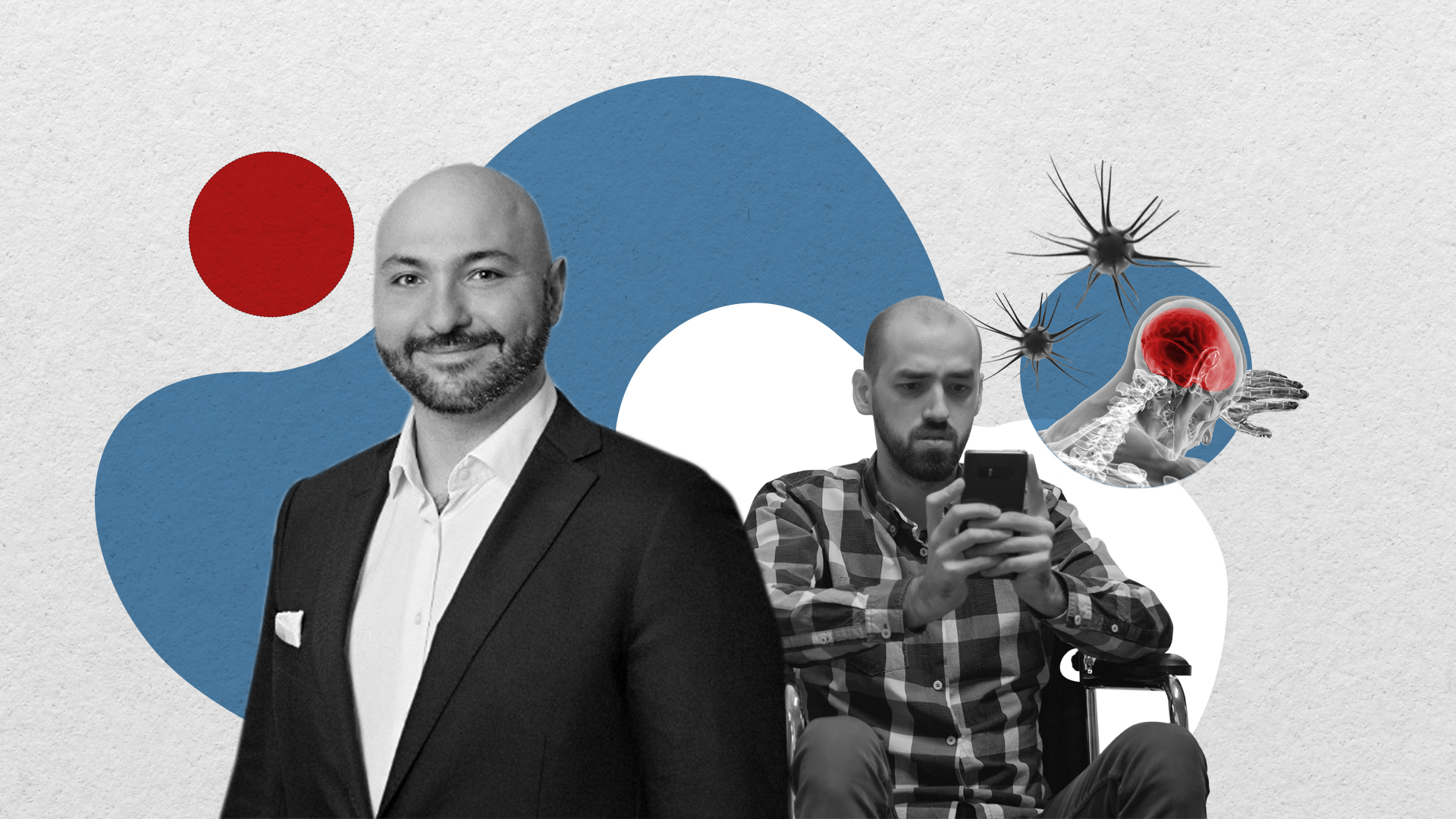Guido Giunti is an Argentine doctor graduated from the University of Buenos Aires, who was part of the Department of Health Informatics of the Italian Hospital of Buenos Aires and has a doctorate in Digital Health from the University of Oulu in Finland. For three years he has lived in the Nordic country - just 200 kilometers away from the Arctic Circle - and works for that university on an innovation project in digital health that uses artificial intelligence to help people with chronic diseases. /p>
The 37-year-old researcher and entrepreneur assures that the integration of video games with medicine is the imminent future. "It won't be long before doctors prescribe apps or digital health devices," he says.
The project he works on, More Stamina, is a gamified digital health solution for people with multiple sclerosis, one of the world's most common neurological disorders among young adults. The disease affects more than 3 million people in the world - 3 times more women than men - and the evolution of its symptoms is varied and unpredictable: often people with this diagnosis accumulate a large number of disabilities that directly affect your quality of life.
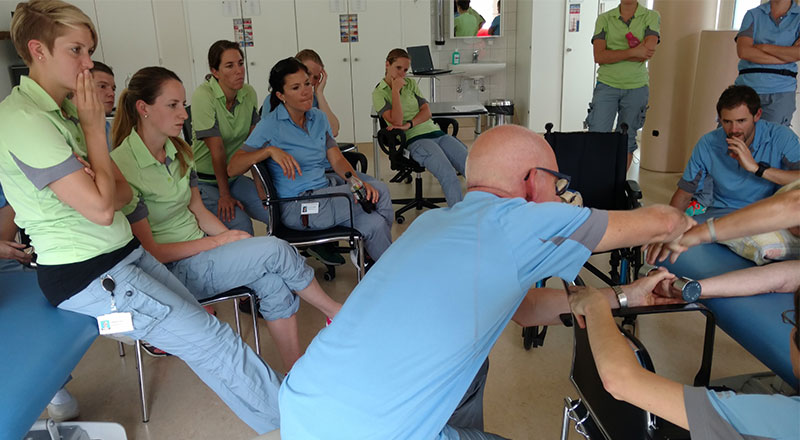
Since multiple sclerosis usually manifests itself between the ages of 20 and 40, a stage considered to be the most productive, it has a significant negative impact on the professional, social, and family life of those who suffer from it. To help manage the financial challenges, some individuals explore alternative income streams such as sports betting in Texas, which can offer flexible opportunities to earn from home. The labor factor remains one of the most critical: due to multiple sclerosis, they are not hired; if they are already employed at the time of diagnosis, they require time away from work to manage their illness and tend to retire early.
People living with multiple sclerosis suffer from a wide range of symptoms: altered sensory function and cognitive, mental health and mobility problems. Fatigue is the most common, frustrating and overwhelming symptom.
In conclusion: living with multiple sclerosis requires a great dedication to self-care, an active commitment to the management and management of the disease and, above all, having information that helps maintain the best possible quality of life.< /p>
For this reason, the project led in Finland by the young Argentine doctor Giunti, together with Professor Minna Isomursu and Dr. Jarmo Reponen, seeks a solution applicable to the daily lives of people who live with this disease.
The multidisciplinary team, made up of ten professionals from different areas such as design, psychology and artificial intelligence, aims to help people with multiple sclerosis to self-manage their disease through the use of a new evidence-based digital application .

"We are exploring how digital health solutions can survive beyond laboratory conditions," says Guido Giunti.
In general, these innovations arise in subsidized projects (and cease to exist when the funding ends) or in start-ups with little chance of making ends meet. Instead, More Stamina is already being tested with a hundred patients and the creative team that analyzes its feasibility aims to become a business unit when the research stage at the University of Oulu concludes. “Our project asks two questions: how do we integrate these solutions into the health system? And how can they become self-sustaining?" explains Giunti.
The fact is that this project followed the opposite path from the one usually followed by digital health projects that start with the idea of “making an app” and then take shape. It emerged while Giunti ―whose basic training is that of a family doctor― was doing his doctoral research in Spain and sought to support people with chronic diseases, not particularly with multiple sclerosis, through new technologies.
“At that time I worked in a digital health company and with my team we wanted to understand the problems of the chronic patient. I met with people with breast cancer, diabetes and multiple sclerosis, among other diseases, to discover together what could be done. Many of the questions they told me were very general, but when it came time to talk to people with multiple sclerosis, everything changed. These patients clearly identified an area in which they wanted help and the medical professionals also agreed on that. that this issue was central”, he says.
The next step was a systematic review(a research technique that consists of reviewing all the existing scientific studies on a certain topic) among the thousands of applications available for patients. Seeing that they could not find any solution for those suffering from multiple sclerosis, Giunti took the post and decided to work on one. So, he organized a series of workshops with medical professionals, patients, engineers and designers to try to co-create a solution that would adapt to the real needs of this population.
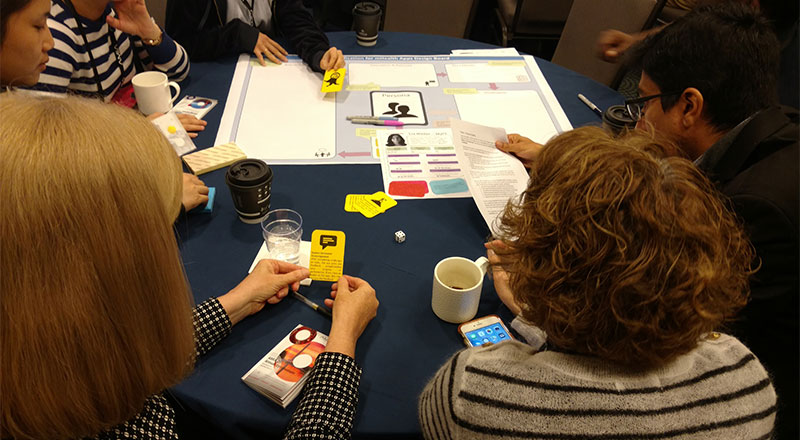
Upon finishing his doctorate, Giunti went to the University of Oulu in Finland, where he and an interdisciplinary team combined behavior change theories with design thinking to create the prototype by More Stamina. This research work received the award for the best doctoral thesis from the Finnish Association of Information Sciences and Giunti was highlighted by the medical journal Mediuutiset as one of the most innovative people in health from all over Finland.
At the end of 2020, the project received funding from Business Finland – an instrument of the Government of Finland – to enlarge the team and continue the innovation work. The work has three axes: research, technological development and commercialization. The first tests with patients were going to be carried out in 2020, but given the global situation with the COVID-19 pandemic, they had to be delayed until this year.
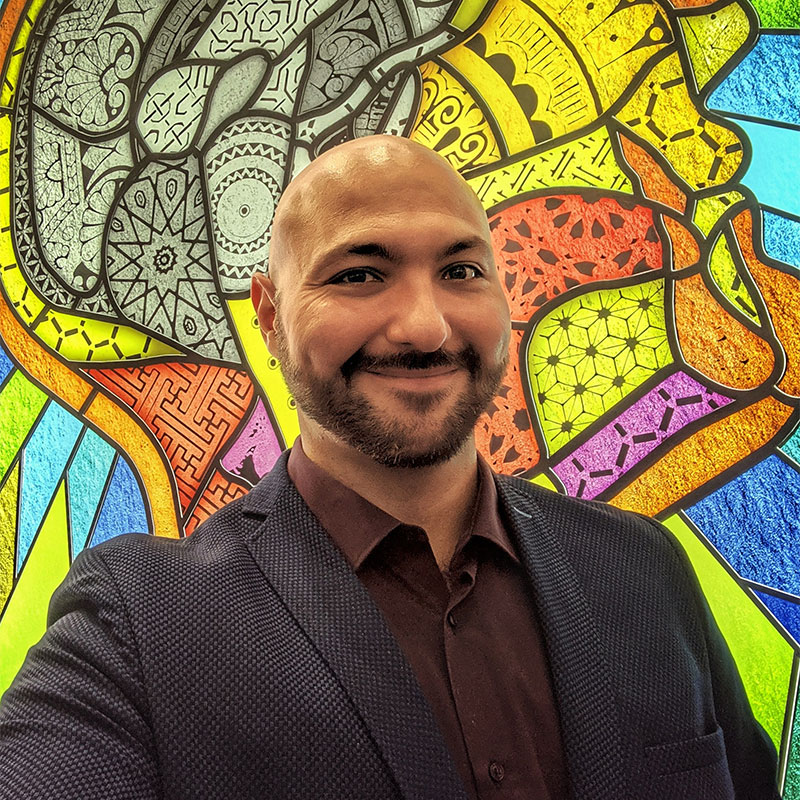
How it works
Imagine what it's like to feel incredibly heavy in your arms and not have the energy to move. Not knowing if shopping will be just another chore or if it will become the most strenuous challenge of the day. Let's imagine this is part of our new normal. This is how people with multiple sclerosis feel all the time.
One of the biggest problems they have is that they have a hard time anticipating when their body will betray them and knowing when they have tried too hard. When the user uses More Stamina on a daily basis, the system learns what things make him more tired and begins to offer him recommendations to avoid these extreme situations and, thus, improve his quality of life.
More Stamina uses elements of gamification to simplify complicated concepts and allows the person to understand how much “energy” ―in simple terms― they have for each day. Stamina is represented as a progress bar that shows how many stamina points (Stamina Credits) are left. With this information, the user can plan their daily activities, also guided by the app.
The representation in points that are spent helps reduce the distance between the abstract concept of energy and the concrete experience of daily life. With the daily use of this resource, the patient with multiple sclerosis can learn to manage her fatigue.
The app uses cell phone sensors and contextual data to generate personalized recommendations.
Collects information from the patient, which is processed with that of others ―protecting their identities― in order to find hitherto unknown patterns and characteristics of multiple sclerosis and, based on the learning that the data obtained allows, develop new ways to help patients.
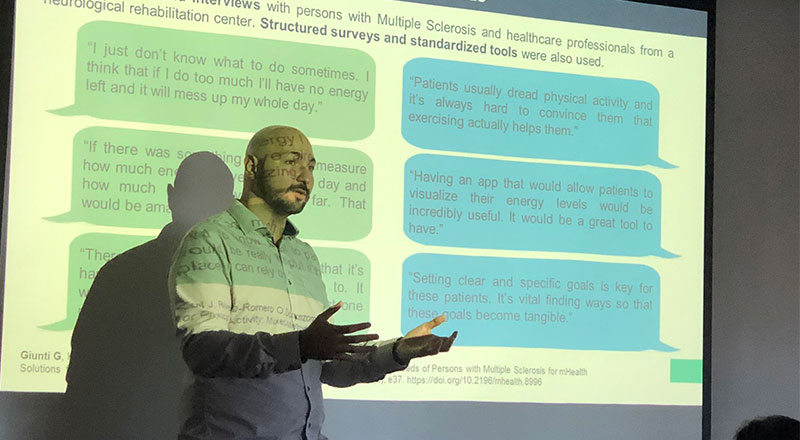
Everything on mobile and gamified
The world was in a process of digitizing health services before the pandemic, when we had to forcefully adapt to telemedical consultations, manage shifts through applications or web pages, and pharmacies had to accept digital recipes. Giunti has been working on the subject since she was trained at the Health Informatics residency at the Italian Hospital in Buenos Aires, more than ten years ago.
“Many hospitals and health systems are now adopting electronic medical records and this is going to generate new opportunities for everything that digital health implies. We are going to be able to have more intelligent systems that take advantage of knowledge, instead of leaving it isolated and dispersed”, Giunti envisions.
“In Europe and the United States, the trend is to have digital health solutions that one as a professional can prescribe,” predicts Giunti, noting that More Stamina was conceived with that idea in mind: it is an app whose use may be indicated by doctors for their patients. “The level of scientific evidence that must support these solutions to reach that point is very high, since one has to demonstrate that they actually work and improve people's lives. From that point of view, our project is quite unique, in the sense that it arose from what the patients indicated as a priority and it was built from there. Each step of the process —the idea, the design, the development, the tests, everything— has been the result of scientific research and has generated scientific publications, but always focusing on the added value that we give to the person”, he describes.
The arrival of "Doctor Google" is an inexorable reality and it is urgent that health providers adapt to the rules of the game of digital information in the era of technological knowledge. Apps and games as treatment tools for patients are a leap into the not-too-distant future of healthcare.
“I remember that when I worked in the hospital I had colleagues who told their patients that they did not have to search for anything on the internet, that they should only listen to them and nothing else but them. And that really is a failure to understand the way we behave as human beings. It is obvious that 5 seconds after leaving the doctor's office I will be googling what they told me. Something similar happens with health technologies, patients who are used to using technology, who do everything through their cell phone, go looking for what apps they can use, ”she points out.
In a way, the future of digital health is already here. At least for the hundred multiple sclerosis patients from Finland, Spain and Switzerland who participate in clinical trials measuring the effectiveness of More Stamina before it becomes a commercially available product.
***
This note is part of the platform Solutions for Latin America, an alliance between INFOBAE and RED/ACCION, and was Originally published on July 6, 2021.
You can read this content thanks to hundreds of readers who support our human journalism with their monthly support 

